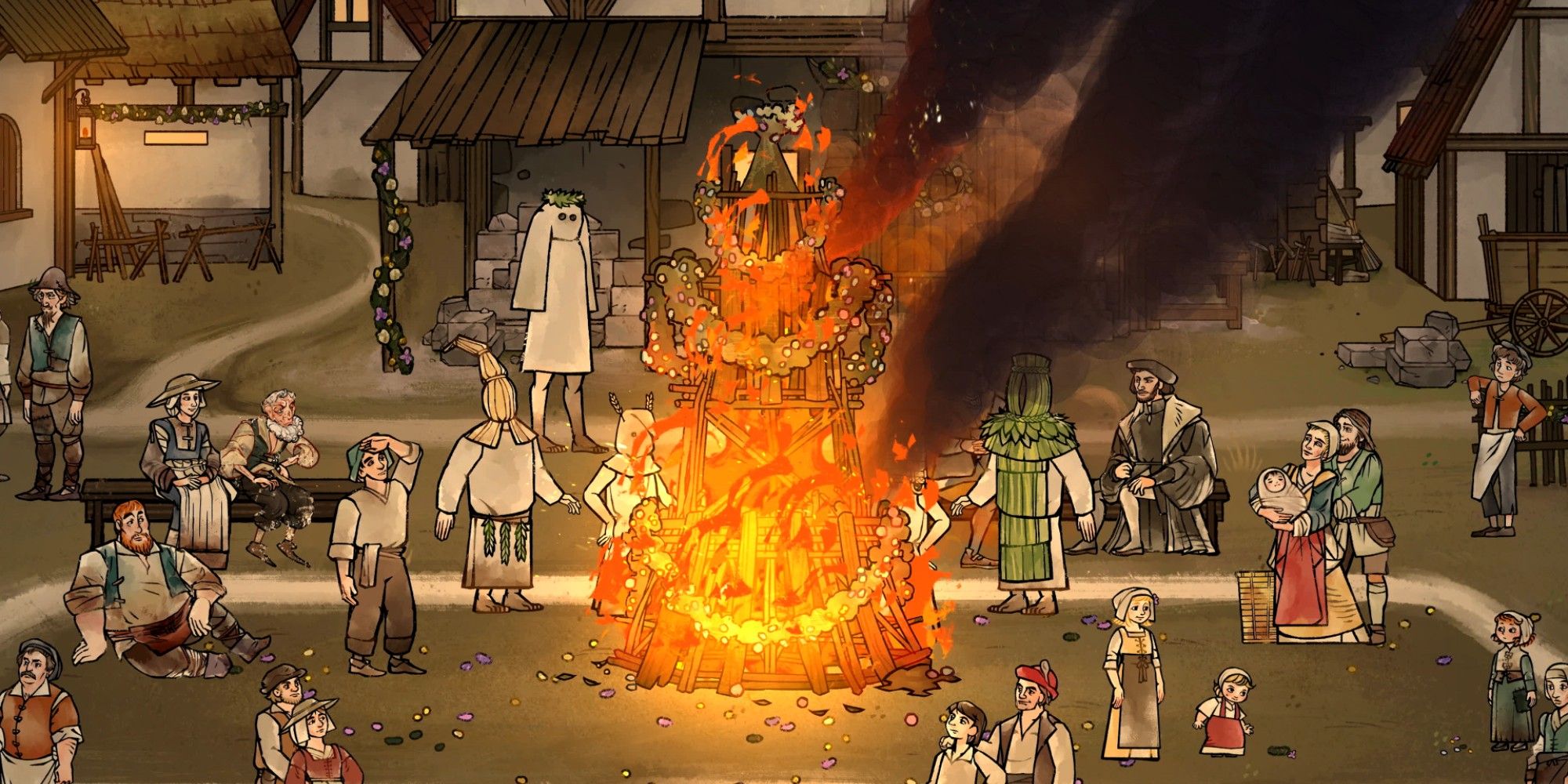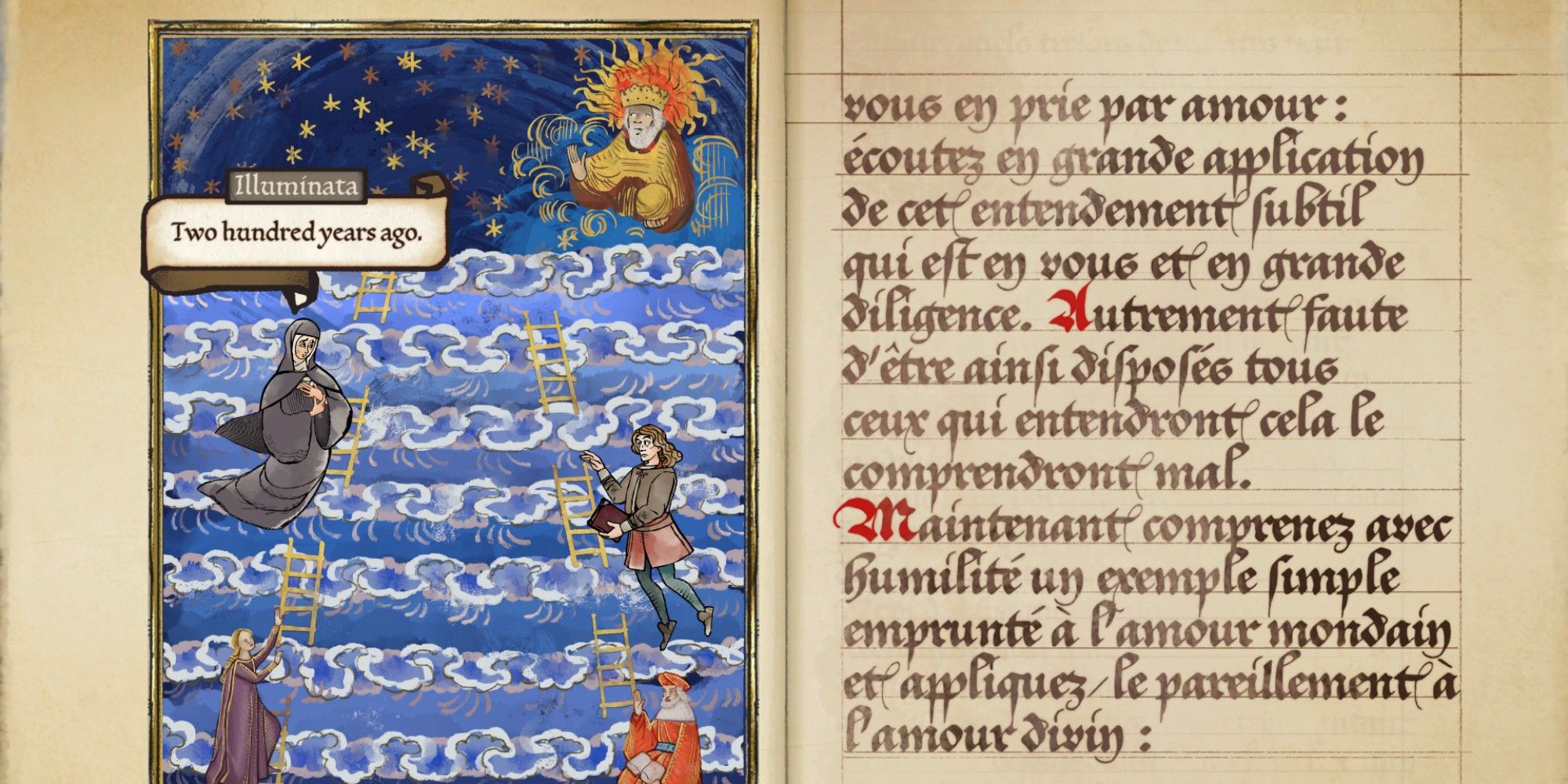Pentiment, the next RPG from Obsidian Entertainment, looks like a completely new kind of game for the studio. Inspired by the aesthetic of paintings from the early modern era, the game is being billed as a "narrative adventure," that director Josh Sawyer has said has "light RPG elements and a branching narrative." Sawyer has also described it as being similar to indie adventure games like Night in the Woods and Oxenfree.
Pentiment’s art style doesn’t do a ton for me, but its story certainly does. Players take on the role of an illustrator who, over the course of 25 years, is drawn into investigating a series of murders at Kiersau Abbey. If the trailer is any indication, he will do that by engaging in conversation with characters in and around the abbey, selecting dialogue options, and exploring every nook and cranny in search of clues and solutions.
While the game’s murder mystery set-up and RPG-meets-adventure-game genre hybridization drew pre-reveal comparisons to Disco Elysium, Pentiment’s narrative sounds more like Zodiac but with the decades-long investigation transplanted from ‘70s-‘90s San Francisco to 16th century Germany. Hopefully, in this detective story, we’ll be able to find the killer.
Pentiment is a new kind of game for Obsidian, but this isn't the first time the studio — which just celebrated its 19th anniversary — has zigged when fans expected it to zag. Beginning life as a sequel incubator for more established RPG developers studios, Obsidian's first two games, Star Wars Knights of the Old Republic 2: The Sith Lords and Neverwinter Nights 2, were sequels to popular BioWare games. It followed those games up with the strikingly original Alpha Protocol, an espionage-focused action RPG, but provided its spin-off services again in 2010, this time developing the beloved Fallout: New Vegas in place of Bethesda.
For the past decade, the company has tried on a variety of different hats and continually expanded its repertoire. The crowdfunded success of Pillars of Eternity found the company returning to the isometric RPGs it cut its teeth with in the early 2000s. That same year, Obsidian put out three games in three different genres: the MMO Skyforge, the mobile strategy game Pathfinder Adventures, and the free-to-play vehicular combat game Armored Warfare.
2016 saw the company return to the isometric well again with Tyranny. Set in a world where an evil empire has already won and players could only choose between bad and worse decisions the game had a strikingly ambiguous approach to RPG morality. 2018's Pillars of Eternity 2: Deadfire retained the isometric perspective of the original, but took the series in a different direction, setting the action among the islands of an archipelago and adding ship-based traversal and combat.
Since then, Obsidian launched a successful Fallout: New Vegas spiritual successor, 2019's The Outer Worlds, a small first-person RPG (well, small when compared to most triple-A open-world games) that took players to a hyper-capitalist solar system ruled by corporations, where players could choose to ally with a Rick Sanchez-like scientist or back The Board and work to crush dissent. The next year, Obsidian launched Grounded, which isn't an RPG at all. The early access survival game stars kids who are mysteriously shrunken down to bug size and must learn to survive in a suburban backyard filled with giant soda cans and even gianter spiders.
As Obsidian looks to the future, it's making the big budget RPG fare that fans might expect following its acquisition by Microsoft. An Outer Worlds sequel is in development and will launch somewhere down the road, as will the Skyrim-like Avowed, which takes place in the Pillars of Eternity universe but switches the action to a first-person perspective.
If we look back at the history of Obsidian, we see that the studio has made basically every kind of RPG: first-person (Fallout: New Vegas, The Outer Worlds), isometric (Pillars of Eternity series, Tyranny), Paper Mario-style turn-based with QTEs (South Park: The Stick of Truth), old school JRPG (South Park: The Stick of Truth's Canada section), action RPG (Alpha Protocol), and MMO (Skyforge). It's dabbled outside the realms of the genre with Grounded and Armored Warfare. And, with Pentiment, the company is drawing from indie adventure games to dabble in a new kind of RPG.
This is what I want to see from more developers. Over the past few generations, games have gotten dramatically bigger and development cycles dramatically longer. Since GTA 5 launched in 2013, Rockstar has only released one additional game: the similarly massive Red Dead Redemption 2. Since The Legend of Zelda: Skyward Sword launched in 2011, there's only been one mainline 3D Zelda game. Breath of the Wild was a masterpiece, but the reality of development in the current era means that, five years on, we're still waiting for a sequel.
Obsidian's approach is a welcome corrective to the bigger = better ethos that governs most of triple- A development. Pentiment looks like a small game, made by a small team within the larger studio. While Obsidian is still working on big games that reflect the cash infusion that likely accompanied its acquisition by Microsoft, it's also giving smaller teams freedom to make less expensive, but stranger products. Nothing in Obsidian's history suggested it could make a Honey, I Shrunk the Kids-inspired survival game or a Renaissance art-inspired adventure RPG. It’s doing it anyway. That’s the promise I see in Pentiment. Whether it succeeds or fails, Obsidian seems to see value in doing something new.



